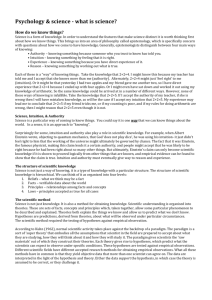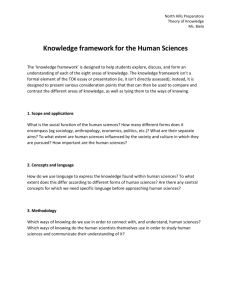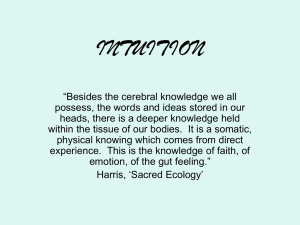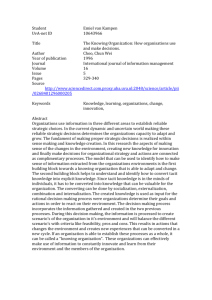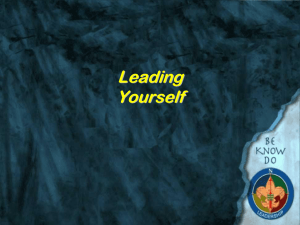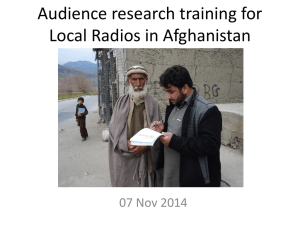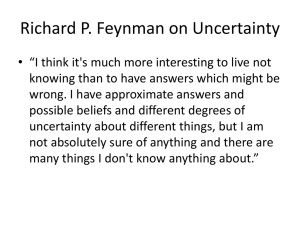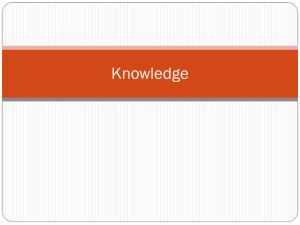File
advertisement
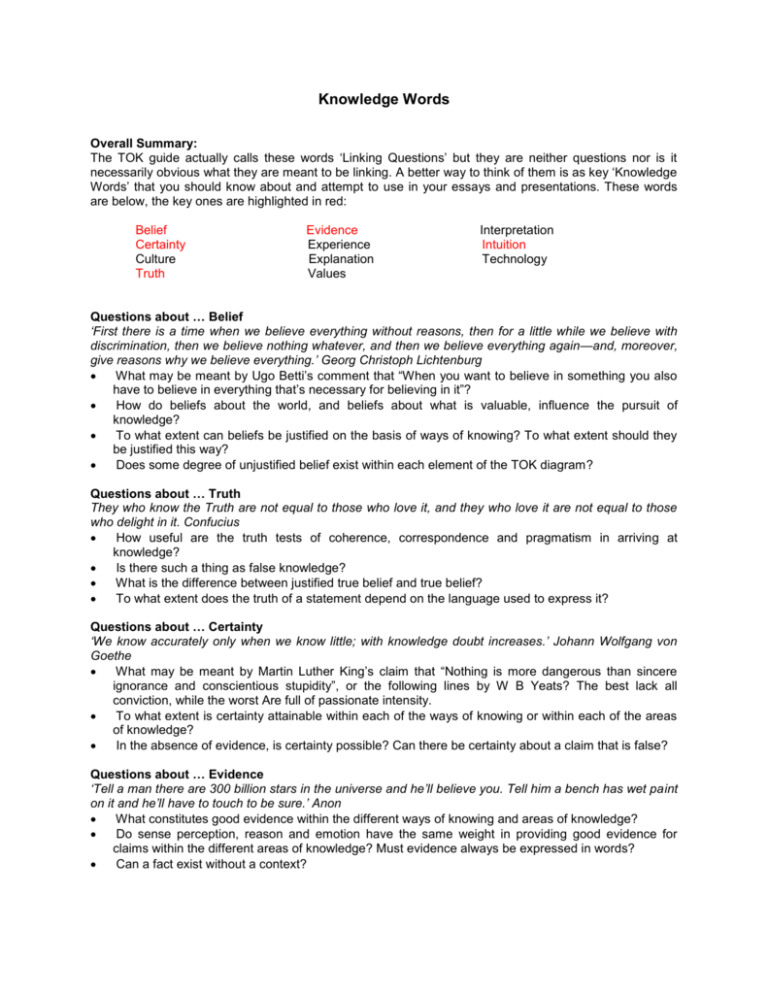
Knowledge Words Overall Summary: The TOK guide actually calls these words ‘Linking Questions’ but they are neither questions nor is it necessarily obvious what they are meant to be linking. A better way to think of them is as key ‘Knowledge Words’ that you should know about and attempt to use in your essays and presentations. These words are below, the key ones are highlighted in red: Belief Certainty Culture Truth Evidence Experience Explanation Values Interpretation Intuition Technology Questions about … Belief ‘First there is a time when we believe everything without reasons, then for a little while we believe with discrimination, then we believe nothing whatever, and then we believe everything again—and, moreover, give reasons why we believe everything.’ Georg Christoph Lichtenburg What may be meant by Ugo Betti’s comment that “When you want to believe in something you also have to believe in everything that’s necessary for believing in it”? How do beliefs about the world, and beliefs about what is valuable, influence the pursuit of knowledge? To what extent can beliefs be justified on the basis of ways of knowing? To what extent should they be justified this way? Does some degree of unjustified belief exist within each element of the TOK diagram? Questions about … Truth They who know the Truth are not equal to those who love it, and they who love it are not equal to those who delight in it. Confucius How useful are the truth tests of coherence, correspondence and pragmatism in arriving at knowledge? Is there such a thing as false knowledge? What is the difference between justified true belief and true belief? To what extent does the truth of a statement depend on the language used to express it? Questions about … Certainty ‘We know accurately only when we know little; with knowledge doubt increases.’ Johann Wolfgang von Goethe What may be meant by Martin Luther King’s claim that “Nothing is more dangerous than sincere ignorance and conscientious stupidity”, or the following lines by W B Yeats? The best lack all conviction, while the worst Are full of passionate intensity. To what extent is certainty attainable within each of the ways of knowing or within each of the areas of knowledge? In the absence of evidence, is certainty possible? Can there be certainty about a claim that is false? Questions about … Evidence ‘Tell a man there are 300 billion stars in the universe and he’ll believe you. Tell him a bench has wet paint on it and he’ll have to touch to be sure.’ Anon What constitutes good evidence within the different ways of knowing and areas of knowledge? Do sense perception, reason and emotion have the same weight in providing good evidence for claims within the different areas of knowledge? Must evidence always be expressed in words? Can a fact exist without a context? Questions about … Intuition ‘Intuition will tell the thinking mind where to look next.’ Jonas Salk In attempting to understand what is commonly called “intuition”, is it best to think of it as a rapid cognitive process or perhaps, as some say, as an irrational or unmediated awareness of phenomena? Germaine Greer once commented that “The frequently celebrated female intuition…is after all only a facility for observing tiny insignificant aspects of behaviour and forming an empirical conclusion which cannot be syllogistically examined.” Does “feminine intuition” exist? Do men’s ways of knowing differ from those of women? To what extent is intuition to be taken seriously in the different areas of knowledge? Questions about … Experience What kinds of knowledge can be gained only through experience? In which areas of knowledge is experience of least importance? What are the dangers of equating personal experience and knowledge? CAS is often described as “experiential education”. In what ways is learning in CAS similar to or different from learning in other areas of the Diploma Programme? Questions about … Explanation ‘Explanation separates us from astonishment, which is the only gateway to the incomprehensible’ Eugène Ionesco What characteristics must an explanation possess to be considered good within the different ways of knowing and areas of knowledge? Must all good explanations make predictions with the same degree of success? What are the differences between persuasive explanations, good explanations and true explanations? Questions about … Interpretation To what extent do the classification systems (labels and categories) adopted in the pursuit of knowledge affect the knowledge we obtain? How does interpretation occur within areas of knowledge? Within ways of knowing? Are some ways of knowing less open to interpretation than others? Questions about … Technology ‘The real danger is not that computers will begin to think like men, but that men will begin to think like computers’ Sydney Harris In what ways has technology expanded knowledge? In what ways has it affected how much we value the different ways of knowing and areas of knowledge? What fields of study have been founded on technological developments? Does information technology, like deduction, simply allow the knower to arrange existing knowledge in a different way, without adding anything, or is this arrangement itself knowledge in some sense? To what extent do information and communication technologies influence the way we think about the world? Who controls these technologies and what effect does that have? To what extent do these technologies determine what we regard as valuable or important? What is the difference between data, information, knowledge and wisdom? Are there technologies specifically designed to impart data, information, knowledge and wisdom?# Questions about … Culture ‘Just because we aren’t all the same doesn’t mean we have nothing in common.’ Kirk Kerekes What beliefs or knowledge, if any, are independent of culture? How do cultures differ with respect to the ways of knowing and areas of knowledge that they value above others? How would one justify valuing one way, or one area, more than another? If one looks at most western compilations of quotations, it seems that most are attributed to dead, white, European males. Why might this be so? Questions about … Values How do values underlie the pursuit of truth in the different areas of knowledge? How, if at all, do they influence methodology? To what extent do the different ways of knowing and areas of knowledge influence the values adopted by individuals and societies?
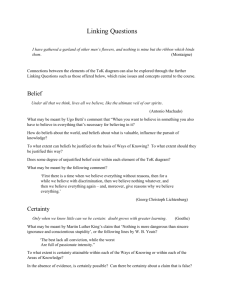

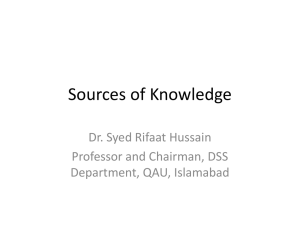
![Transformational Change [Powerpoint Presentation]](http://s2.studylib.net/store/data/005447411_1-da0a83bd34bdb90183940ab700125003-300x300.png)
